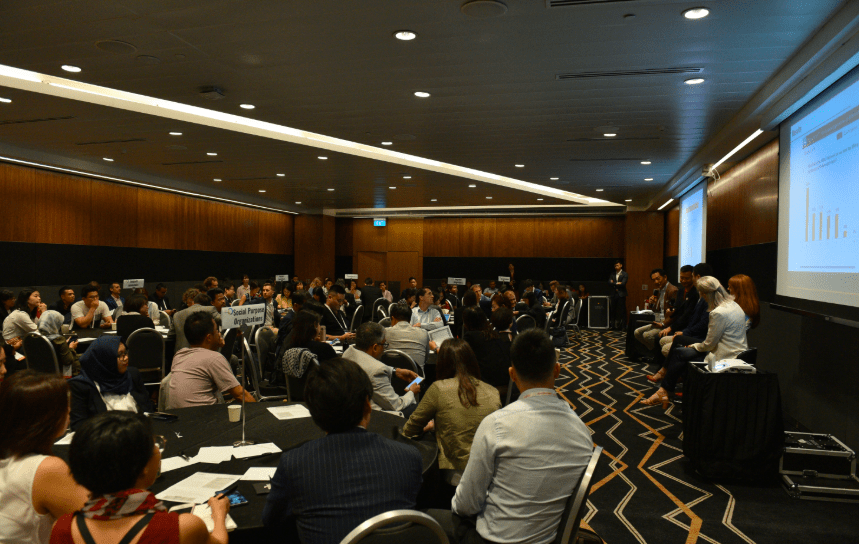What happens when you put 1,200-plus people in the same space for three full days? Somehow the dots start connecting themselves leaving enough room to ask questions, share thoughts and build some common points. After attending the AVPN Conference for the first time, here are my ‘top 5’ words that appeared in the panels, workshops and conversations I took part in during the days in Singapore. Are we building a common narrative or just spreading a trend while we find the next interesting word? You tell me.
- Impact: this is certainly the winner. Impact is becoming an adjective ratherer than a noun.Impact measurement, impact investment, impact evaluation, impact washing, etc. I think it’s great we are raising this point and asking questions like, are we delivering impact? Is sustainable that impact? How are we measuring it? However, my impression is that we’re still on the surface of the conversation. Is impact the next currency for the philanthropic sector? Do we want to create standards on this? How useful or dangerous could that be? Would it help the sector to show its importance or would it create expectations that were impossible to meet?
- New _______: this is a tricky one. From new models to new power, it seems like we need to refresh a number of things. But as Jeremy Heimans from Purpose said during the closing session when he talked about new and old power, ‘new and old doesn’t necessarily mean good and bad, the important is how we bring them together.’ Maybe in the eagerness to redo everything, we are missing the point. Do we need a new ‘something’ for everything?
- Collaboration: since I work in a global network this is one of my personal favourites. Collaboration seems an obvious solution to all our problems, a frame that will allow everyone to contribute to making change and creating a positive impact. However, it’s always a challenge. Heather Grady from Rockefeller Philanthropy Advisors illustrated it as a disjunction between ‘egos and logos’ on the one hand, and Collaboration on the other. How often are philanthropic organisations and the people inside them willing to leave the first behind and go for the second?
- Failure: according to the dictionary, failure is a lack of success in doing or achieving something, especially in relation to a particular activity. Somehow, social innovation has brought a different definition to the table. As Marissa Tirona from Ford Foundation explained during the panel on ecosystems ‘it is time to think in terms of learning.’ The question is, are we building this as a culture inside the sector, or are we just trying to be cool and following a fashion without taking it seriously? If we ask ourselves about the way success looks like, should we also be open to wonder how failure looks ?
- Scale: If you fail, and you learn, then you are ready to scale….aren’t you? Scaling seems one of the biggest challenges ahead. ‘Our challenge is not to find the solutions, but to bring the solutions to scale,’ says Christine Heenan of Rockefeller Foundation. There are still many unanswered questions. Is scaling up always a top priority? How we can do it? When is the right time? How do we find the right partners?
Nadya Hernandez is Programs Coordinator at WINGS

















